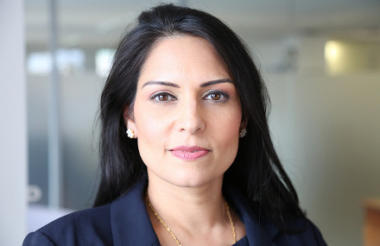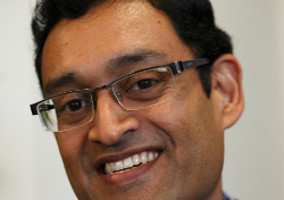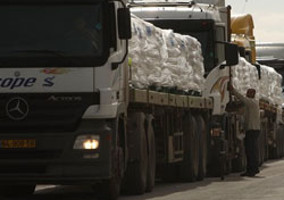Aid agencies are becoming too dependent on the Department for International Development and instead should be standing up to it, the director of programmes at ActionAid said at a Labour Conference fringe event yesterday.
David Archer, who was speaking at an event on how aid can work for global justice, hosted by social action organisation Global Justice Now, said: “It is time for the international NGOs who are based in the UK to be willing to stand up and say that it is not good enough to place 0.7 per cent of the budget to aid, we need to look at what that aid is spent on. We need to speak with a united voice.
“It is challenging because too many of the UK NGOs have become too dependent on DfID funding, and because they get some funding from DfID they are unwilling to stand up and criticise. I think that is a problem. We should never be silenced based on how we receive some funding. We should be much bolder in challenging the misuse, and the abuse, of aid which I think is happening now and is only going to get worse.”
Nick Dearden, director of Global Justice Now, agreed with Archer. He spoke of the positive press releases that came out when Priti Patel took up her position as the new Secretary of State for International Development. He said he’d questioned someone from an NGO about their press release and asked them why, and they had told him that they had their PPA (Programme Partnership Agreement) being discussed at the moment – which would be a big amount of money coming from DfID – and they “just couldn’t risk it”. He said that co-option is a “real problem”.
ActionAid later sought to make clear that Archer was speaking in a personal capacity and that his views were not that of ActionAid's. Last week ActionAid issued a statement welcoming the Secretary of State’s commitment to tackling global poverty.
Role of NGOs
Archer also said it was important for aid organisations to not just provide the basic services in these developing countries, but to support communities to become independent. Otherwise this just creates parallel structures.
He said: “It is very easy for NGOs, and ActionAid historically used to provide basic services ourselves, but I think that becomes unsustainable and problematic. What we should be doing is strengthening the capacity of citizens to hold the government to account for the delivery of services and strengthen that relationship and their capacity.
"These are hugely important roles for NGOs there and to deepen and increase civil society is an important part, but I would draw a line on that area of service delivery which can become problematic and creates parallel structures if you are not careful.”
Aid agencies shouldn’t be seen as a ‘lady bountiful’
Also speaking on the panel was Diane Abbott MP, who until June was shadow minister for international development.
Abbott said that the aid industry needs to have more of a commitment to moving things on, and not just create areas of Western-led aid in developing counties. She spoke of visiting an NGO’s project for women where a group of women “broke into a song of praise about that NGO”. She said if the aid sector is going to work for global justice, it also has to work to “move away from a relationship where the aid industry as seen as a ‘lady bountiful’. And which is one of equality”.
She also said that aid organisations should do more to engage with diaspora from developing countries. She said that they should be hiring the diaspora as they would have greater knowledge and understanding of the same issues that NGOs have to travel to find out.
Current approach to aid about ‘British self-interest’
Archer was heavily critical of Priti Patel and the new policies she recently published on aid in her role as Secretary of State.
He said: “We are actually living at a time of a very scary radical new vision of aid, but unfortunately a very wrong one. The manifesto that Priti Patel has put forward as the new minister for international development, and was published first of all in the Daily Mail, represents a very scary vision of aid. And aid which is purely about British self-interest. Looking to advance commercial interests and security interests around the world. It is a self-interested agenda, rather than genuinely looking to address poverty and injustice around the world.”
This story was amended after first publication to include insistence from ActionAid that David Archer was speaking in a personal capacity and not representing the views of the organisation.
Related articles











